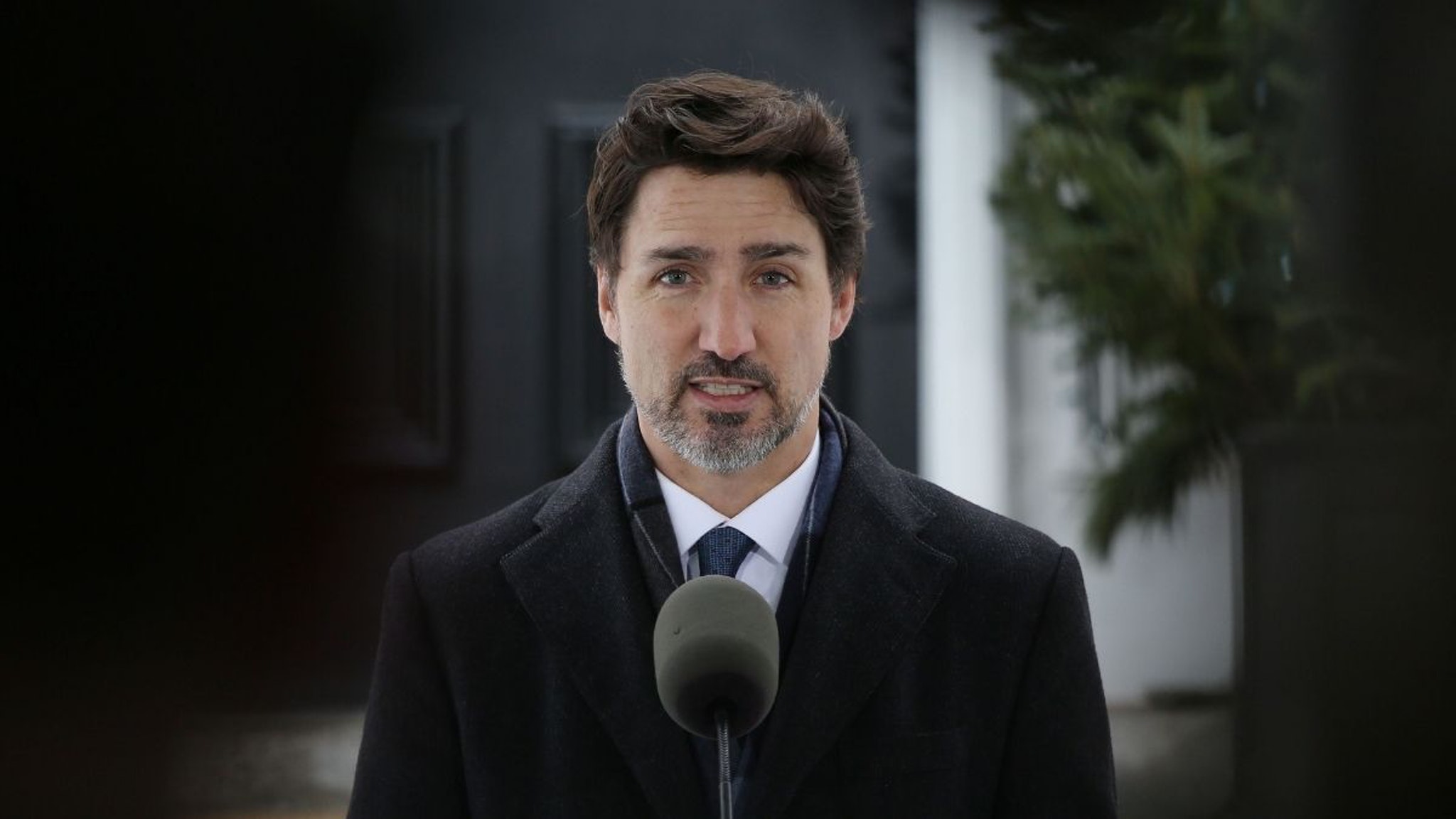Foreign Affairs
Trudeau’s Emergency Act Sent A Shockwave Through The Cryptocurrency World

- In a move that has angered crypto investors, companies and enthusiasts all over the world, the Canadian government is considering permanently extending the emergency measures that allow it to monitor and seize cryptocurrency.
- Prominent executives in crypto have spoken up against this overreach: Elon Musk mocked Trudeau by comparing him to Hitler, Ethereum cofounder Vitalik Buterin slammed Canada’s crackdown on crypto and the CEOs of Kraken and Coinbase — two of the biggest centralized exchanges in the world — each sent strongly worded tweets.
- New cryptocurrency regulations may be coming to America as well. Last week the FBI announced that they are “launching a unit for blockchain analysis and virtual asset seizure.”
In a move that has angered crypto investors, companies and enthusiasts all over the world, the Canadian government is considering permanently extending the emergency measures that allow it to monitor and seize cryptocurrency.
Finance Minister Chrystia Freeland announced sweeping new rules on Feb. 14 which empowered Financial Transactions and Reports Analysis Centre of Canada (FINTRAC) to track, freeze and/or seize cryptocurrency from anyone supporting the trucker protests.
“The government will also bring forward legislation to provide these authorities to FINTRAC on a permanent basis,” Freeland said.
Prime Minister Justin Trudeau revoked the Emergency Act on Wednesday, but it is unclear what specific cryptocurrency rules will be made permanent under Canada’s anti-terror laws, and which will end with the emergency powers. Freeland’s office did not respond to an inquiry from the Daily Caller News Foundation.
100% yes it has/will happen and 100% yes, we will be forced to comply. If you’re worried about it, don’t keep your funds with any centralized/regulated custodian. We cannot protect you. Get your coins/cash out and only trade p2p.
— Jesse Powell (@jespow) February 18, 2022
Concerning to see stuff like this happening in any country, especially such an economically free place like Canada.
Self-custodial wallets are important! ->https://t.co/ppIvaIcWWh https://t.co/nJw2EhyJhd
— Brian Armstrong – barmstrong.eth (@brian_armstrong) February 15, 2022
The CEOs’ tweets were strange since they actively encouraged their users to defect to competitors. The tweets even piqued the interest of the Ontario Securities Commission, which flagged them to the RCMP because they appeared to encourage people to skirt the rules about donating to the truckers’ protest.
“We are aware of this information and have shared it with the RCMP and relevant federal authorities,” wrote the OSC’s manager of public affairs.
Both the tweets explicitly refer to “non-custodial wallets,” a simple version of which would be like storing cryptocurrency on a USB stick under a mattress. A more complex non-custodial wallet is a piece of software known as a “smart contract.” There are thousands of non-custodial products that lie in the space between smart contract and USB stick, but in each type, the user holds their own “private key,” thus ensuring that cryptocurrency assets are immune to financial censorship.
Canadian officials realize they cannot freeze non-custodial wallets unlike individual bank accounts.https://t.co/HwulB4l2Tp
— BTC Times (@btc) February 23, 2022
“Custodial wallets,” in contrast, store cryptocurrency on a cloud that is owned and operated by whatever exchange is entrusted to hold it. From a legal standpoint, such centralized exchanges may have no choice but to comply with government orders and FINTRAC monitoring, assuming they want to keep doing business in Canada.
“It is unfortunate that the Emergency Economic Measures Order is indiscriminately targeting the whole cryptocurrency ecosystem,” said Justin Hartzman, co-founder and CEO CoinSmart, a Toronto-based crypto trading platform, to the DCNF. “The addresses associated with this alert have been widely disseminated to the entire crypto community here in Canada and have reportedly been reported to the blockchain monitoring softwares that service the industry world wide. We will cooperate with the OPP and the RCMP and fulfill our obligations, if any, under the Emergency Economic Measures Order.”
Non-custodial companies are speaking out more bluntly against Trudeau’s emergency measures.
“We cannot ‘freeze’ our users assets. We cannot ‘prevent’ them from being moved. We do not have any knowledge of the existence, nature, value, and location of our users’ assets. This is by design,” said Nunchuk, a non-custodial wallet company, in a letter to the Ontario Supreme Court of Justice. “Please look up how self-custody and private keys work. When the Canadian dollar becomes worthless, we will be here to serve you, too.”
Briane is a single mom from Chilliwack working a minimum wage job. She gave $50 to the convoy when it was 100% legal. She hasn’t participated in any other way. Her bank account has now been frozen. This is who Justin Trudeau is actually targeting with his Emergencies Act orders.
— Mark Strahl, MP (@markstrahl) February 20, 2022
The DCNF spoke with two additional non-custodial wallet companies, Edge and Swype.
“This topic really is a key purpose of all of our products,” said a spokesperson for Edge. “Whether or not someone agrees with the protests themselves isn’t the point here. The point is that, if you’re cheering this on, some day the other side will be in charge, and you might not be so cheerful. At our foundation as a people, we have to have rules that we all play by which can’t be violated. Crypto was built for this.”
Editor’s Note: At the time of writing this article, the author owned various long positions in Bitcoin, Ethereum and several other coins and/or crypto derivatives. None of these coins are stored on any of the exchanges or wallet companies mentioned in this story.
All content created by the Daily Caller News Foundation, an independent and nonpartisan newswire service, is available without charge to any legitimate news publisher that can provide a large audience. All republished articles must include our logo, our reporter’s byline and their DCNF affiliation. For any questions about our guidelines or partnering with us, please contact [email protected].

